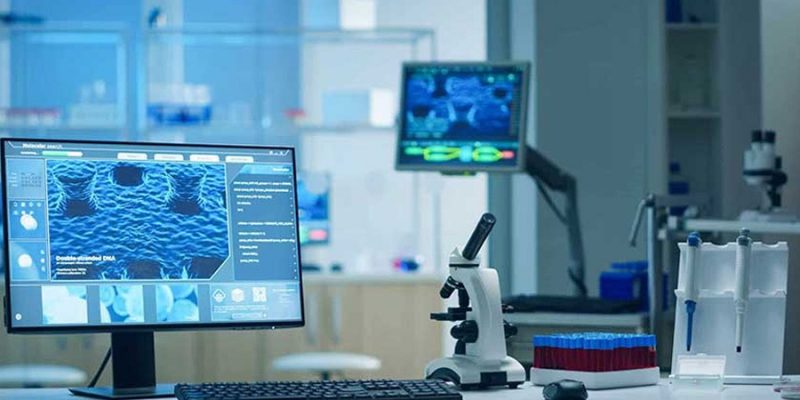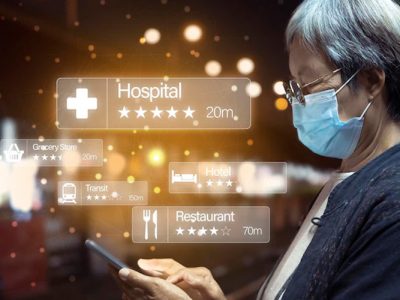
5G might improve the patient experience by facilitating quicker analytical insights and bettering healthcare decision-making.
Most healthcare professionals are unaware of the remarkable implementation prospects that 5G wireless networks can open up for them. A cohesive 5G “ecosystem” was produced as a result of the great prospects that 5G provided for a wide range of new technologies. Despite the enormous new prospects in healthcare, medicine is sluggish to evolve, as seen by the dearth of fresh, cutting-edge applications built upon this ecosystem. The necessity to “prevent technology surprise” therefore becomes apparent. Robotic aided minimally invasive surgery and laparoscopic surgery were both put off for years due to the medical community’s ignorance or resistance to new technology.
To identify possibilities, constraints, and obstacles associated with the adoption of 5G and the ecosystem it has created, the significant transformative qualities of 5G communications and other cutting-edge technologies are outlined and compared to healthcare demands. Additionally, the requirements for administrative infrastructure, medical and surgical education and research, as well as clinical applications, are met. We also look at the non-technical issues that favor or oppose this latest healthcare reform. Current scientific data is examined for potential future trends for the transformation of healthcare based on the advantages of these novel technologies that have been demonstrated time and time again. It will be feasible to shorten the lengthy period for acceptance and implementation for patients by making them aware of these prospects and their benefits.
On Thursday, GE Healthcare announced the opening of its first 5G Innovation Lab outside of the United States in India. According to the business, 5G can disrupt the patient care continuum by reshaping diagnosis, therapy, and prognosis. It has the benefit of large capacity, fast data rates, low latency, and very dependable connectivity.
According to a business release, “The 5G Innovation Lab is meant to place GE Healthcare at the forefront of these innovative advancements in patient care, including potentially bringing cutting-edge technology to rural and suburban communities.”
The lab will act as a testbed for developing future-ready products and solutions, marking a new frontier in innovation, according to GE Healthcare. It is located in the John F. Welch Technology Centre (JFWTC) Bengaluru, the company’s largest R&D facility outside of the United States. Modern infrastructure is housed there, including a private 5G network for research and development. For academics, the healthcare sector, and entrepreneurs, it offers knowledge and a platform for a collaborative ecosystem, promoting research and enabling validation and qualification of 5G-enabled “Precision Healthcare” use cases, according to the statement.
5G in Healthcare is expected to generate revenues of USD 3,667 million by 2026, up from an anticipated USD 215 million in 2021. By enabling the swift gathering and transfer of big data files and real-time, high-definition video, which may facilitate speedier analytical insights and streamline clinical decision-making, 5G might play a significant role in revolutionizing the patient experience, according to the business.
“India is a big market for us globally, and it is unquestionably the right moment to get into 5G,” asserts Jan Makela, President & CEO of Imaging at GE Healthcare. “5G will unlock a realm of exciting possibility, propelling the next wave of progress in Healthcare.” The GE Healthcare 5G Innovation Lab will serve as a conduit to enable the interplay of exponential technologies like AI/ML, IoT, Big Data, Edge Computing, and cybersecurity, according to the release.
5G in healthcare
The spread of the coronavirus has placed unprecedented strain on healthcare systems all around the world, making the potential transformation and improvement of 5G networks relevant today. A new health ecosystem that can correctly, effectively, easily, affordably, and at a sizeable scale address the demands of patients and providers will be made possible by 5G, which promises to deliver the necessary levels of connection. However, network security and data privacy are crucial to maximizing the promise of 5G networks in healthcare settings.
As the usage of 5G in healthcare increases, a new connected healthcare ecosystem will form, with robotics, IoT, and AI advancements enhancing its applications. We believe that this ecosystem will be 4P (predictive, preventative, personalized, and participatory), a relatively novel idea in medicine.
Predictive
Due to its constant flow of real-time information on patients’ vital signs, pertinent alerts, knowledge of lifestyle choices, and social factors, the new health ecosystem will be better able to foresee risks to patients.
Preventative
Being predictive improves one’s ability to take preventive action. As demonstrated in South Korea, it is possible to track and locate the locations of a large number of people with surprising accuracy using smartphone applications. This capability is especially relevant in light of the COVID-19 outbreak.
Personalized
The ability to personalize people’s healthcare experiences and interventions would be greatly facilitated by the combination of continuous real-time health monitoring via 5G networks.
Participatory
Patients will go from being passive recipients of healthcare to active players in setting their outcomes in the 5G-enabled health ecosystem. The typical US patient currently has more than 5,000 waking hours to take care of himself.
Patients can enhance their quality of life and medical results while lowering total healthcare costs by “activating” part of those 5,000 hours or managing their health, tests, and treatments independently. The ability to alter many elements of patient care may be created by merging 5G with other cutting-edge technology, while also accelerating the introduction of a new healthcare ecosystem.



















